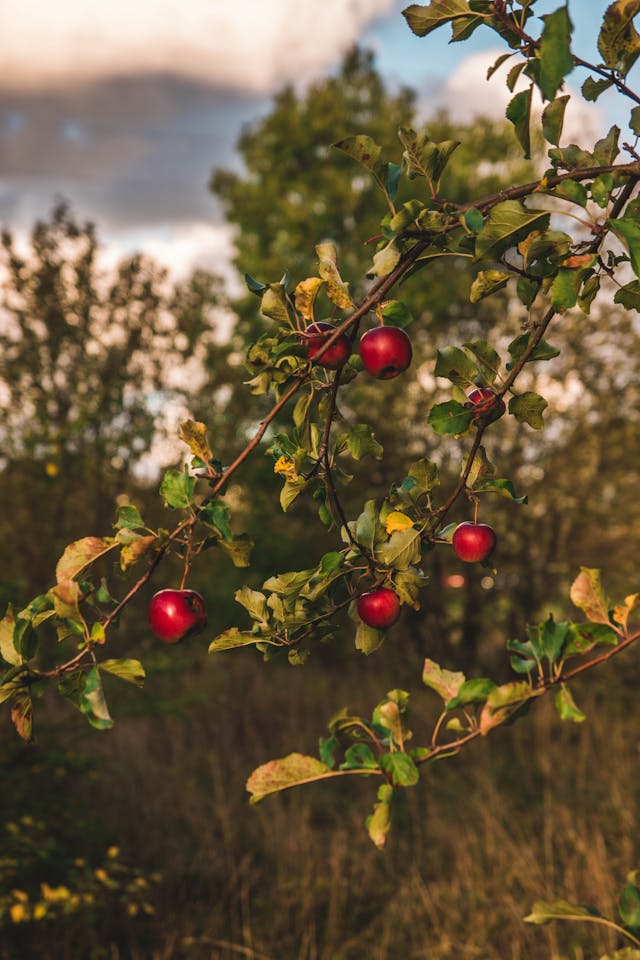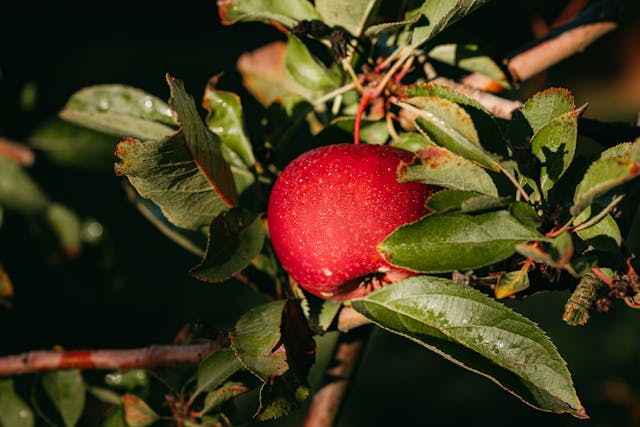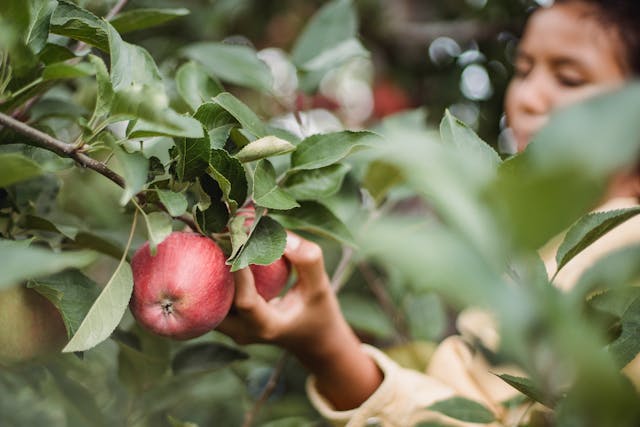Apple cultivation has long been associated with high-altitude regions, where the cool climate provides the ideal conditions for growth. However, with advancements in agricultural techniques, low altitude apple cultivation in Solan is now thriving other lower-altitude areas in Himachal Pradesh.
The Gala apple variety has emerged as the leading choice for farmers in this region, thanks to its adaptability and high yield potential. The use of high-density farming techniques has further revolutionized the industry, allowing farmers to maximize production while optimizing land use.
The Growing Popularity of Gala Apples in Solan
Traditionally, apple orchards were found at altitudes above 6,000 feet, where the temperature and chilling hours favoured fruit development. However, in recent years, low-altitude apple farming (3,000–5,000 feet) has gained traction, particularly in Solan.
Among the different varieties, Gala apples have proven to be the best-suited for this climate. Originally from New Zealand, Gala apples are known for their sweet taste, crisp texture, and bright red skin with yellow undertones.
This variety requires fewer chilling hours compared to traditional apples like Red Delicious or Granny Smith, making it ideal for temperate conditions found in lower hills.

Low altitude apple cultivation in Solan: The Game-Changer
The success of apple farming in Solan is largely attributed to the adoption of high-density plantation (HDP) techniques. This method involves planting apple trees in closely spaced rows, allowing farmers to cultivate 1,000 to 1,200 trees per hectare instead of the conventional 200 to 300 trees.
Benefits of High-Density Apple Farming in Solan
- Early Fruit Bearing: High-density plantations start yielding fruit within 2-3 years, compared to 7-8 years in traditional orchards.
- Higher Productivity: Farmers can achieve three to four times the yield per hectare.
- Efficient Land Utilization: Maximizing space allows for increased production in smaller areas.
- Ease of Management: Trees are shorter and easier to prune, spray, and harvest.
- Better Pest and Disease Control: Proper spacing and drip irrigation minimize the risk of infestations.
- Consistent Quality: Uniform size and shape of apples make them more appealing to markets.
Discover how the dedicated horticulturists of Solan are growing Gala apples in Happy Valley Nursery.
Key Requirements for Low Altitude Apple Cultivation in Solan
For successful apple cultivation in lower altitudes, certain factors must be carefully managed:
1. Climate and Soil Conditions
- Temperature: Ideal range is between 10°C to 25°C.
- Rainfall: Moderate rainfall (1000-1200mm annually) is beneficial.
- Soil Type: Well-drained, loamy soil with a pH of 6.0 to 6.5.
2. Rootstocks and Varieties
- M9, M26, and MM106 rootstocks are preferred for high-density orchards.
- Gala varieties such as Royal Gala, Super Gala, and Scarlet Gala, Schniga Schniko Red, T-Rex Gala are commonly planted.
3. Orchard Management | LOW ALTITUDE APPLE CULTIVATION IN SOLAN
- Drip Irrigation: Ensures proper water management and prevents root rot.
- Pruning and Training: Trellis and spindle systems are used for shaping trees.
- Pollination Management: Introduction of bee colonies improves fruit set.
- Fertilization: Use of organic manure and micronutrients enhances soil health.
Market Potential and Economic Benefits
With increasing demand for fresh, locally grown apples, farmers in Solan are seeing significant economic benefits. The local markets, as well as major cities like Chandigarh, Delhi, and Ludhiana, provide lucrative opportunities for selling high-quality Gala apples.
Moreover, the farm-to-table movement and the rise of organic farming have further enhanced the appeal of these apples. The export potential is also promising, with Indian apples gaining popularity in Middle Eastern and Southeast Asian markets.
Conclusion | Low altitude apple cultivation in Solan
The shift towards low-altitude apple farming has opened new avenues for farmers in Solan. With the Gala apple variety and high-density plantation techniques, growers can increase yields, improve fruit quality, and boost profitability. As technology continues to evolve, the future of apple farming in lower altitudes looks bright, offering a sustainable and profitable alternative to traditional orchards.
By adopting the right techniques and ensuring proper orchard management, Solan is set to become a major hub for premium-quality apples, contributing significantly to India’s fruit production industry.


